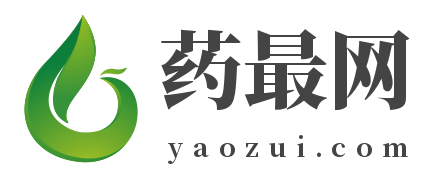
高速路网星罗棋布、超过2亿的汽车保有量,无不证明着在经济发展驱动下,中国城镇化和现代化的迅猛势头。
▼

本文为世界卫生组织驻华代表施贺德博士的评论文章。
人类发明汽车是为了便利出行、给人自由;但遗憾的是,随着交通耗时增长、拥堵日益严重、非法停车挤占步道,我们反而成了车的奴隶。
为挣脱困局我们做了很多努力,一度把修路当作解药。但路越宽,路上的车越多、流逝在拥堵里的时光越长,如此往复。人性化现代公交系统应具备的道路设施和社会基础,在中国仍须进一步建立。
因此,世卫组织非常高兴与交通运输部、公安部、全国总工会携手,支持中国的“公交出行宣传周”。
公交出行宣传周期间全国各地开展的蓬勃活动把我们的视线拉回到一个不可逾越的问题:如何在构建城市空间时,把规划对健康的影响考虑在内。
在行人、骑车人、小汽车、公交巴士之间,如何分配有限的道路资源才更合理?拼车、共享单车等共享经济给我们带来哪些启示——群众接受新型交通服务的意向如何,交通系统是否适应这些创新?是否有充分的激励机制,鼓励人们选择健康行为,如:走路、骑车、乘坐公交,不开私家车也不停车占道。
当人们公交出行时,从家到车站、再从车站到单位这之间的短途,人们往往选择步行或骑车。我是自行车爱好者,骑行给我带来的愉悦心态和健康利好,我可以现身说法。不管是工作还是休闲,只要可能,我都用骑车、乘坐地铁或公交的方式,到我要去的地方。我还鼓励世卫组织驻华办事处的所有同事优选公交,绿色出行。选择公交出行还有利于环境,让我们呼吸的空气越来越洁净,进而促进我们的身体健康。

这些,要怎样才能成为现实呢?
要通过交通政策,鼓励健康、绿色、人性化的出行方式。这包括加大对公交网络的投入;进一步合理配置道路资源,让人们在享受共享单车带来的便捷时,人行步道依然有路可走。也可以通过政策增加开车的成本——提高停车费,对非法停车施以严惩,还可考虑拥堵费。
最关键,要把人作为城市规划的核心考虑。中国的城市正在以空前的速度增长。让我们提醒自己:一个优质的现代城市不仅仅给人提供工作和学习的机会,还给他们宜居的生活。一个优质的现代城市应该是人们保持身心健康、享受愉悦生活的家园。
中国发展迅猛。得益于此,在中国发展发过程中,可以规避其他国家走过的弯路。中国在过去35年中取得的长足进步,让我们有自信对此保持乐观。在保护环境、优化城市生活的过程中有公共交通同行,将是中国和中国人民为之自豪的又一件幸事。

Healthy Cities Start with Public Transit
Opinion Piece By Dr Bernhard Schwartländer
WHO Representative in China
China’s extensive highway network and the millions of cars on roads eloquently attest to China’s rapid process of urbanization and modernization driven by economic growth.
Unfortunately, while cars were invented to make getting about easier and to give us more freedom, they have ultimately enslaved us as we face longer journey times, traffic jams and difficulty navigating the sidewalk among the many illegally parked cars.
To help us out of this logjam, “progress” too often dictates that even more roads be built, meaning more cars on the road and more time in traffic jams, ad infinitum. The physical and social infrastructure to support modern, people-friendly, public transit systems in China has yet to be fully developed.

That’s why this week WHO China has been pleased to support China’s Public Transportation Promotion Week, jointly staged by the Chinese Ministry of Transport, Ministry of Public Security, and All China Trade Union.
The promotional week and its many public transit activities across the country brings our attention to important questions that must be asked – and answered – about how we are constructing our urban spaces and the costs to human health.
How can we divide up the limited amount of transit space more fairly among pedestrians, cyclists, cars and buses? What does the shared economy – including both shared rides and share bicycles – teach us about the public’s willingness to embrace new transit services, and the flexibility of our transit systems to incorporate these innovations? Have sufficient incentives been put into place that promote healthy behaviors, such as encouraging people to walk, cycle, travel on public transport instead of driving and parking private cars?
When people use public transit they usually walk or cycle more between home, office, bus stops and train stations. As a keen cyclist myself I can attest to the immense enjoyment it gives me and to the health benefits it provides. Whenever it’s possible, whether it be on business or pleasure, I always call on my trusty bike, the bus and subway, to get me from A to B and then from C to D. Indeed I encourage all my colleagues at WHO China to do the same. And the environment related benefits would subsequently contribute to better human health when we breathe cleaner air.

How do we achieve this?
We need transit policies that actively incentivize healthy, green, and people-centered transit. That includes investing more in public transport networks and rationalizing the allocation of space such that the overwhelmingly positive response in favor of shared bikes doesn’t crowd out pedestrians on the sidewalks. It also means making it tougher to choose to drive and park – governments need to charge people much more for parking, consider congestion charges and get tough on those who park illegally.
What is most important of all is to put people at the heart of city planning. Cities are growing at an unprecedented pace in China. Let’s remember that a good modern city is not just a place for people to work and study, but is also their habitat – a place in which they ought to be able to enjoy a healthy life, physically and mentally.

As citizens of a fast-developing country, the Chinese have been fortunate to be able to learn from the mistakes of others. The country’s tremendous achievements in so many different fields, particularly over the past 35 years or so, give cause for this optimism. By harnessing public transport as an ally in protecting the environment and in improving urban lives, the country and its people will have yet one more thing to be proud of.
(本文来源:世界卫生组织)


